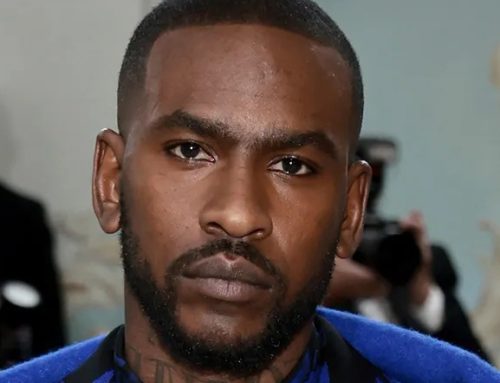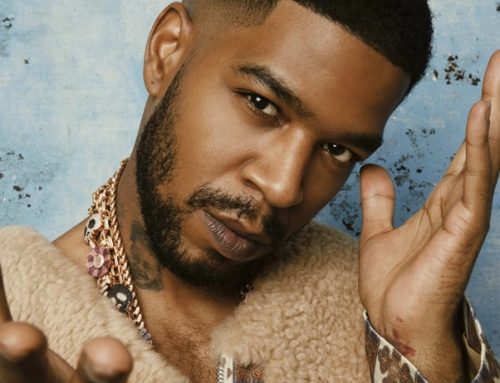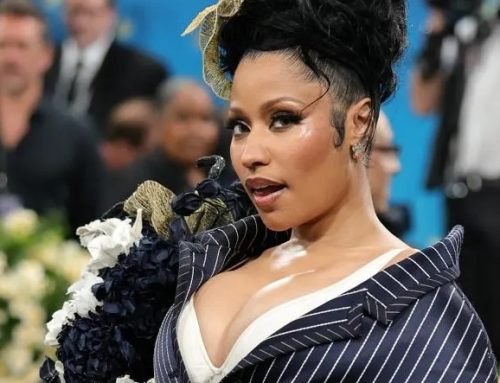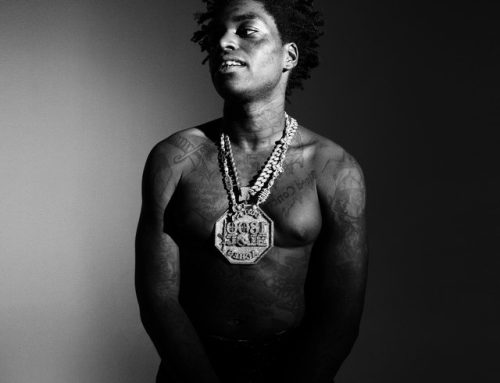When movie director Ryan Coogler joined the team in charge of developing the film Judas and the Black Messiah — the Shaka King-directed film, which tells the infamous story behind Black Panther chairman Fred Hampton’s death at the hands of the FBI and Chicago Police Department — an opportunity arose for him and his company, Proximity Media.
Following his conversations with King on how they wanted to approach the film, Coogler, and Archie Davis, svp of marketing at RCA Records, began formulating ideas for an official soundtrack. The burning question was of how they were going to capture the film’s raw and emotional energy into an album. Hip-hop and R&B, two of the most critical forms of expression in Black culture, answered that question for them.
Davis met with Fred Hampton Jr. and Akua Njeri, the legendary activist’s son and widow, to discuss the soundtrack’s vision. He then reached out to RCA Records svp of A&R, Aaron “Dash” Sherrod, and Grammy Award-winning producer Hit-Boy to executive produce the project. Sensing the film’s emotional and historical undertones, Dash and Hit-Boy wasted no time jumping on-board.
“It was like a brotherhood when we came together,” Dash tells Billboard. “Archie was like, ‘Hey, I got this opportunity,’ and I told him I would be honored to join. The privilege of even being a part of something like this is bigger than any label or accolade. It feels like we really captured a moment.”
Judas and the Black Messiah: The Inspired Album details the Black experience as it pertains to the past, and how it correlates with the times we’re living in now. To bring that message home, the four-person team compiled a star-studded guest list of some of hip-hop’s biggest stars from both past and present — including Rakim, Nas, Black Thought, Rapsody, Polo G, G Herbo and Lil Durk. Anticipation for the album began when H.E.R.’s “Fight For You” earned a nomination at the Golden Globes last week. That hype crescendoed when Masego tweeted out the track-list on Tuesday (Feb. 9).
Hit-Boy’s ear for quality and cohesiveness was vital to the soundtrack’s success. Hit felt no pressure in its assembly, telling Billboard the brotherhood he has with the team made the process easy.
“[Archie and Dash] understand what I do and trust what I do,” he says. “I’m always trying to stay modern with the sound and subject matter, so that’s something they realized with me as well. My music was fitting in the scope of what they were doing, so they kind of made it easy for me.”
Hit-Boy had already worked on some ideas with Dom Kennedy and Nas — another key contributor — by the time Davis approached him with the idea. The RCA vp heard those tracks, and everything was set in stone afterward. For the 22-track project, the executive producers wanted to recreate the feeling and tone of a crucial time in American history for a modern audience.
“Chairman Fred Hampton was 21 years old when he was assassinated,” says Davis. “If you think about a youthful movement in the late ’60s, what does that feel like now? I think that was our benchmark for this process. Making sure this felt current.”
Chairman Fred Hampton is rarely mentioned in schools across America, unless a teacher goes off the curriculum and informs their students of the legendary activist’s contributions. These four men created a platform educating the masses on a prominent Black figure, whose deeds and heroics rivaled those of civil rights activists Martin Luther King Jr. and Rosa Parks. When asked if there was any stress making this soundtrack, Davis says the Black experience already brings pressure — and how with this album, it was a matter of utilizing that stress to create something beneficial for them and their community.
“For a long time, people have shied away from inspired soundtracks because they look at it as just this opportunity to associate yourself with something — but I think this was our opportunity to educate the artists and ourselves through this process,” Davis relays. “In turn, we created a body of work that exhausted every opportunity our guided steps led us to.”
Dash supports those sentiments saying, “A lot of these artists were becoming informed about Fred Hampton and the Black Panther movement — like Polo G, who took a few weeks to study Fred Hampton because he said he wanted to do something meaningful, or Pooh Shiesty who, in the middle of his album rollout, wanted to be a part of this, and got a clip of Fred Hampton at the beginning of his track. Every artist that was on the project contributed something meaningful, and fought to be on it.”
One of the most special contributions on the soundtrack is Nipsey Hussle and Jay-Z’s mega-collaboration “What It Feels Like.” After teasing the snippet in the movie’s latest trailer earlier this week, demand for the record hit a new high.
Hussle’s inclusion on the soundtrack came to be when he met chairman Fred Hampton Jr. at a show in Sacramento. Having played an integral role in developing the film, Hampton Jr. knew Hussle had to be included, based on his past interactions with him.
Years later, Nip’s manager Steve Carless sent in a few records for consideration, but also played the beat for “What It Feels Like,” which Davis and Dash knew they needed to have. Carless told the guys Hussle was holding on to the record for a special moment, but eventually sent it to them on December 4, 2020 — 52 years to the day of Fred Hampton’s death, as well as Jay-Z’s own birthday.
Jay’s involvement was reminiscent of how the 2007 film American Gangster inspired him to get in the booth and create an entire album. The newly-minted Rock and Roll Hall of Fame nominee caught a screening of Judas and the Black Messiah and told Coogler he wanted to do a record for the soundtrack. David and Dash sent “What It Feels Like,” and in less than 24 hours, Hov returned the track. What happened next was something out of the ordinary.
“Me and Hit were in the studio with Mustard when I got the text from Archie about the record, and I was like, ‘Yeah, man, we got a Nip record Hov just got on,’ and Mustard immediately started going crazy,” Dash recounts. “He was like, ‘Nip would be so proud, he would be so happy! My homie might drop tears of joy.’ And all the lights in the studio just started flickering. That record is not a record. I don’t know how to explain it. It’s a piece of art, and we don’t want people to take it lightly, or look at it as just another song.”
He continues: “I wish people would understand these are two kings we lost at such an early age, and their legacy supersedes everything. It’s something you can’t imagine. He worked on that song for ten years and originally wanted Jay on it — and for him to accomplish that, not even being here… that was God.”






